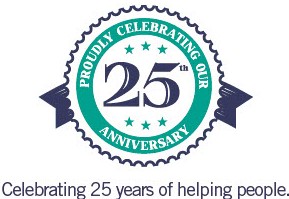The Canada Emergency Response Benefit, otherwise known as CERB, has proved to be a lifeline to millions of Canadians over the COVID crisis.
To maximize the rollout of funds, the federal government made receiving CERB funding very easy. However, that also meant that there were many Canadians who were able to receive CERB cheques who were not eligible to do so. Early this year, Employment Minister Carla Qualtrough made it clear that even though federal ministries may have provided incorrect information about claiming benefits, Canadians who mistakenly received the funds will not be let off the hook.
If you received CERB but turned out to be ineligible, the Canada Revenue Agency will not forgive the money, but may forgive interest and penalties. So what does this mean to thousands of Canadians who can’t repay their CERB benefits?
Who is eligible to receive CERB?
To qualify for CERB you must have had a reduction in your employment income so that you were making less than $1000 per month during the pandemic. If you were receiving other government support like Social Services, Pension, or EI you did not qualify.
If you were self-employed you could receive CERB if you made $5,000 of net income in 2019 from your self-employed income. Net self-employed income is the income you report on your income taxes after business expenses. Currently, self-employed people that did not have $5,000 of self-employed net income and that took the CERB are being sent repayment letters from the CRA. Likely more are to follow once the 2020 tax filings are due.
If you have further eligibility questions, the CRA has a full listing of eligibility requirements on their website.
I can’t repay my CERB. What do I do?
If you received a letter from the Canada Revenue Agency demanding the repayment of some or all of the funds you received from CERB, don’t panic, there are options available to resolve the situation.
Option 1: Contact the Canada Revenue Agency
For applicants who have to repay due to errors made in good faith, the CRA has stated that they will work with individuals on a case-by-case basis. Canadians can reach out to speak with a Canada Revenue Agency representative to make payment arrangements, however, this option is only suitable if you have the means to repay the federal government on their timeline.
Option 2: Speak to an Insolvency Professional
Our team at BNA Debt Solutions is very focused on the CERB repayment issue headed into the 2021 tax season. We can help you with options to resolve your outstanding payments.
Can CERB income be included in a bankruptcy or proposal?
The Canada Revenue Agency has not provided the insolvency industry with clear direction on how they will treat this kind of debt. Typically debts owing to the CRA can be dealt with through insolvency proceedings through either a consumer proposal or personal bankruptcy.
Our industry is running on the belief that if the funds were received through an honest mistake, with zero evidence of fraud, then the debt should be able to be discharged through the traditional insolvency process. It should be noted that some debts, if the CRA can prove that the debt was created out of fraud or misappropriation, can survive the insolvency process.
Getting professional advice
If you’ve found yourself receiving a repayment letter and you do not have the financial means to do so, we highly recommend you contact our team at BNA Debt Solutions. Even though they have indicated a more lenient response, the CRA has strong collection powers, and as Licensed Insolvency Trustees, we are the only professionals who can get between you and the federal government to negotiate a debt settlement.
Our team has over two decades of experience in resolving Canada Revenue Agency debt, and we will be able to help you plot the best course of action in resolving your CERB-related issues.




